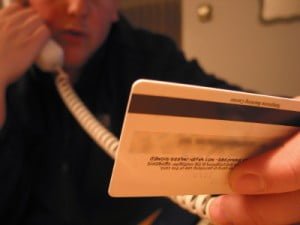 It has been over a year since the Credit CARD Act required credit card companies to provide the toll-free numbers for non-profit credit counselors on credit card statements. However, according to the National Foundation for Credit Counseling, they have only received 150,000 calls from the 500 million statements printed since February 2010. Why is that? Well let’s take a look at how credit counseling agencies operate:
It has been over a year since the Credit CARD Act required credit card companies to provide the toll-free numbers for non-profit credit counselors on credit card statements. However, according to the National Foundation for Credit Counseling, they have only received 150,000 calls from the 500 million statements printed since February 2010. Why is that? Well let’s take a look at how credit counseling agencies operate:DMPs are primarily used for credit cards, but could include other debt such as hospital or lawyer bills. Secured debt, such as mortgages or car loans, are not included. Rather than risk having borrowers default,card companies pay counseling agencies a part of the debt that they’re able to recoup. The figure varies but is usually no more than 8 percent of the amount repaid.
When you enter a DMP, it’s noted on your credit report that the affected accounts were closed and are being repaid through a non-profit. Creditors will know this means you’re on a DMP. This means you won’t be able to open a new line of unsecured credit. So you will have to rely on your savings and checking accounts for the duration of the plan.
Oftentimes, the first barrier to debtors calling a credit counseling agency is that they simply don’t trust them because the agency receives their compensation from credit card companies. Because of this, many debtors feel that there may be a conflict of interest. That’s not to say that credit counseling agencies are doing things to harm debtors; but they don’t have a lot of incentive to encourage a debtor to file bankruptcy even when they know it’s the best option. Also, since they cannot provide any help with secured debts such as a mortgage or car loan, they don’t offer a comprehensive solution for most debtors. If our legislators want to offer honest and unbiased help to troubled debtors by providing contact information about debtor resources on credit card statements, they should also include a link to the government site on bankruptcy www.usbankruptcy.gov .
(source: Journalgazette.net )